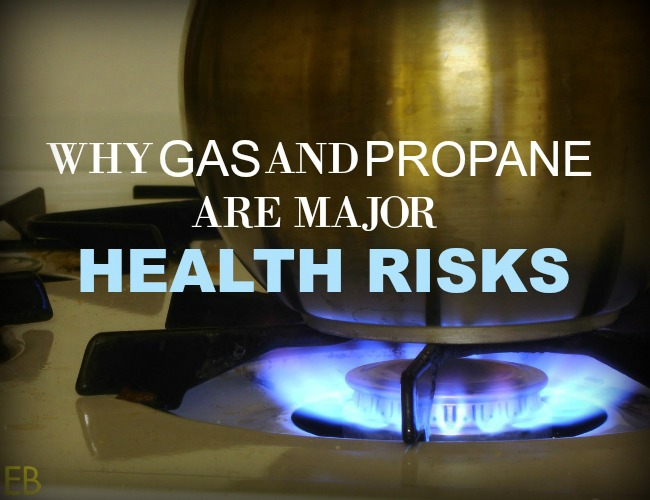No, propane is not bad for you. In fact, it is a very common fuel that is used in many different applications. Propane is a clean-burning fuel that is highly efficient and produces very little emissions.
It is also very affordable and easy to store, making it a great choice for many people.
Propane is a gas that is often used for heating and cooking. It is also used as a fuel for vehicles. Many people believe that propane is bad for your health, but there is no scientific evidence to support this claim.
Some people think that propane gas can cause cancer, but there is no evidence to support this claim either. Propane gas is not known to be harmful to your health.
Why is propane bad?
Is Propane Cancerous?
There is no scientific evidence to suggest that propane is cancerous. However, like all hydrocarbon-based fuels, propane does produce emissions that can be harmful to human health if inhaled in large quantities. These emissions include carbon monoxide, nitrogen oxides and particulate matter.
While there is no definitive link between propane exposure and cancer, the World Health Organization has classified propane as a Group 2A carcinogen, meaning it is possibly carcinogenic to humans.
How Much Propane is Toxic?
Propane is a gas at room temperature and atmospheric pressure. It is odorless, colorless, non-toxic and has a very low boiling point. Propane is highly flammable and explosive.
When inhaled, it can cause asphyxiation. Propane is found in natural gas, which is why it’s often used as a fuel source for cooking and heating. However, propane is also used in many other applications, such as refrigeration, chemical synthesis and metalworking.
The amount of propane that is considered toxic depends on several factors, including the concentration of the gas and the length of exposure. In general, however, exposure to high concentrations of propane can be fatal. Even lower concentrations can cause dizziness, nausea and vomiting.
If you are exposed to propane gas, it is important to get to fresh air immediately and call 911 if you feel nauseous or dizzy.
What are the Main Dangers of Propane?
The main dangers of propane are:
1. Propane is highly flammable and explosive. A small leak can quickly turn into a large fire or explosion.
2. Propane is heavier than air, so it can collect in low places and create an asphyxiation hazard.
3. Propane leaks can be hard to detect because it is odorless. A special “leak detector” solution can help you find leaks.
4. If you use propane for heating, cooking or hot water, make sure your appliances are vented to the outside to avoid deadly carbon monoxide poisoning.
What are 3 Disadvantages of Propane?
Propane is a type of gas that is commonly used for fuel. It is odorless and colorless, and it is also flammable. Propane can be found in both liquid and gaseous form.
There are several disadvantages of propane:
1) Propane is flammable, which means that it can easily catch fire and cause explosions. This can be extremely dangerous, especially if there are people or animals nearby.
2) Propane is a greenhouse gas, which means that it contributes to climate change. Greenhouse gases trap heat in the atmosphere, causing the Earth’s temperature to rise.
3) Propane is non-renewable, which means that it cannot be replenished once it has been used up.
This means that we will eventually run out of propane if we continue to use it at the current rate.


How Long Does It Take to Get Propane Poisoning
Propane is a common gas used in many homes for cooking, heating, and powering some appliances. While it’s generally safe to use, there is a risk of propane poisoning if it’s not used properly.So, how long does it take to get propane poisoning?
It depends on the amount of propane that’s inhaled and how long exposure lasts. Symptoms of mild propane poisoning include headaches, dizziness, and nausea. These typically appear within 2-3 hours after exposure.
More severe symptoms, such as loss of consciousness and respiratory failure, can occur with higher levels of exposure and may take up to 24 hours to develop.If you think you or someone else may be experiencing propane poisoning, it’s important to get out into fresh air immediately and call 911. Time is critical when dealing with this type of poisoning so getting medical help right away is crucial.
Propane Inhalation Long-Term Effects
When inhaling propane, you are essentially breathing in a gas that is made up of carbon and hydrogen. While this may not seem harmful, over time it can have serious consequences on your health. The long-term effects of propane inhalation can include damage to your liver, kidneys, and brain.
It can also lead to cancer.So why is inhaling propane so dangerous? Propane is a hydrocarbon, which means it is made up of both carbon and hydrogen atoms.
When you breathe in propane, these atoms enter your bloodstream and are distributed throughout your body. Over time, the carbon atom will start to build up in certain organs, such as your liver or kidneys. This build-up can cause damage to these organs and potentially lead to cancer.
Additionally, the hydrogen atoms will bind with oxygen molecules in your blood, making it harder for your blood to carry oxygen to your cells. This can lead to serious health problems like brain damage or even death.If you or someone you know has been inhaling propane regularly, it’s important to seek medical help right away.
The sooner you get treatment, the better chance you have of avoiding permanent damage to your health.
Propane Fumes Side Effects
If you’ve ever smelled propane, then you know it’s not a pleasant experience. But what you may not know is that inhaling propane fumes can have some serious side effects.Propane is a gas that is used in many different applications, from cooking to heating to powering vehicles.
When propane is burned, it releases harmful chemicals into the air. These chemicals can be extremely dangerous if inhaled, especially over time.So what are some of the side effects of inhaling propane fumes?
Well, short-term exposure can cause headaches, dizziness, and nausea. It can also irritate your eyes, throat, and lungs. In more severe cases, it can lead to unconsciousness or even death.
Long-term exposure to propane fumes can damage your nervous system and cause respiratory problems. It can also increase your risk of cancer.
Symptoms of Propane Poisoning
Propane is a gas that is used in many different ways. It can be used for cooking, heating, and even powering some vehicles. While propane is a very versatile gas, it can also be dangerous if it’s not used properly.
Inhaling propane can lead to poisoning, and symptoms of propane poisoning can include:-Dizziness
-Nausea
-Headaches
-Vomiting
-Lethargy
-ConfusionIf you believe you or someone else has been poisoned by propane, it’s important to seek medical attention immediately. Propane poisoning can be deadly, so don’t delay in getting help.
Propane Allergy Symptoms
If you’re one of the unlucky few who are allergic to propane, the symptoms can range from mild to severe. The most common symptom is a skin rash, but you may also experience shortness of breath, wheezing, and nausea. In extreme cases, anaphylactic shock can occur.
If you think you might be allergic to propane, it’s important to see a doctor as soon as possible. They will likely perform a skin test or blood test to confirm the allergy. Once your allergy has been confirmed, there are a few things you can do to avoid exposure to propane.
If you use propane for heating or cooking in your home, switch to another fuel source such as natural gas or electricity. If you have apropane-powered car, consider switching to another type of vehicle. And if you work in an industry where propane is used (such as welding), be sure to wear proper protective gear and take other precautions recommended by your employer.
How Long Does It Take to Recover from Propane Poisoning
Propane is a highly flammable gas that is used in many household appliances, such as gas grills, furnaces, and water heaters. While propane is a safe and efficient fuel source when used correctly, it can be dangerous if inhaled. Propane poisoning occurs when someone breathes in too much propane gas.
Symptoms of propane poisoning include headache, dizziness, nausea, vomiting, and confusion. If not treated immediately, propane poisoning can lead to unconsciousness and even death.So how long does it take to recover from propane poisoning?
If caught early and treated promptly, most people make a full recovery within 24 hours. However, some people may experience longer-term effects such as headaches or dizziness for up to a week afterwards. In rare cases, people have died frompropane poisoning; however, this is usually due to delayed treatment or underlying health conditions.
If you suspect that someone has been exposed to propane gas, it is important to call 911 immediately and move them to fresh air. Do not try to drive yourself or the person exposed to the hospital; instead wait for emergency medical services to arrive.
How to Test for Propane Poisoning
If you or someone you know is experiencing the symptoms of propane poisoning, it is important to seek medical attention immediately and then test for propane exposure. Propane is a gas that is used in many homes for heating and cooking. Although it is safe when used properly, propane can be poisonous if inhaled.
Symptoms of propane poisoning include headache, dizziness, nausea, vomiting, confusion, and loss of consciousness. If you think you or someone else has been poisoned by propane, call 911 or your local poison control center right away.To test for propane poisoning, a blood or urine sample will be taken and analyzed in a laboratory.
The results of the test will help doctors determine the severity of the exposure and treat the person accordingly. If you have been exposed to propane fumes, it is important to get fresh air immediately and remove yourself from the source of the fumes. You should also seek medical attention as soon as possible so that proper treatment can be administered.
Propane Fumes in House
If you suspect that there are propane fumes in your house, it is important to take action immediately. Propane is a highly combustible gas, and even a small spark can cause an explosion. If you can smell propane, open all the doors and windows to ventilate the area.
Do not turn on any lights or appliances, as this could create a spark. Leave the house immediately and call your gas company from a safe location. Do not re-enter the house until the gas company has determined it is safe to do so.
Conclusion
Propane is a gas that is used in many different applications, from home heating to powering vehicles. While it is a very versatile and useful fuel, there are some potential risks associated with its use. Propane is flammable, and if it leaks, it can cause fires or explosions.
Inhaling propane can also be dangerous, as it can cause asphyxiation. If you use propane, it is important to be aware of these risks and take precautions to prevent accidents.






